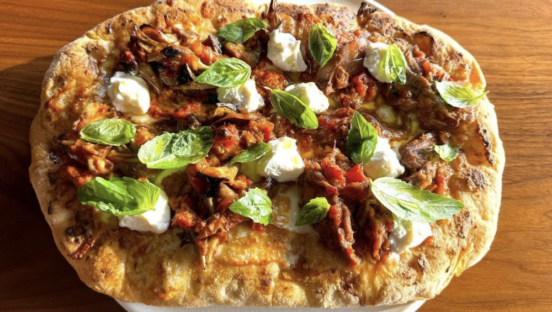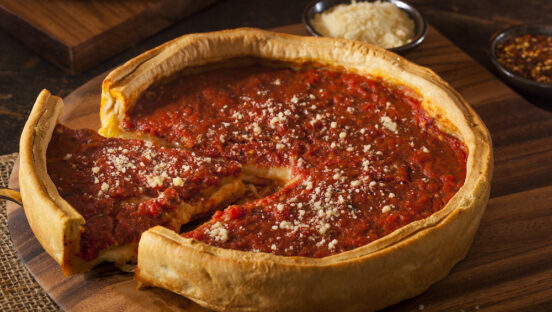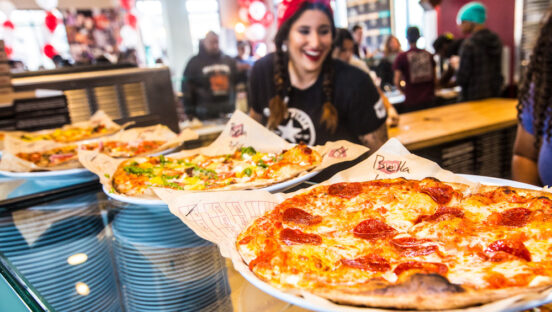- In a letter to Congressional leaders, the National Restaurant Association said certain provisions of the Build Back Better Act will hurt the restaurant industry.
- An Association survey found that 78 percent of operators have seen a decline in indoor, on-premise dining, and 85 percent reported smaller profit margins than before the pandemic.
Related: How to address labor problems in the restaurant industry
The restaurant industry’s recovery is “officially moving in reverse” as new data shows the COVID-19 delta variant destabilizing the economy, according to a letter the National Restaurant Association sent to Congressional leaders today.
The letter shared discouraging new operator survey findings and warned that certain provisions of the Build Back Better Act (BBBA) could hurt the industry.
A new national survey of restaurant operators found that restaurateurs believe a recovery from the pandemic will be prolonged well into 2022. A majority of fullservice and limited-service operators say business conditions are worse now than three months ago. Additionally, 44% of operators think it will be more than a year before business conditions return to normal, and 19% believe they never will.
The survey also found:
- 78% of operators say their restaurant experienced a decline in customer demand for indoor, on-premises dining in recent weeks because of the delta variant spike.
- 63% of operators say their sales volume in August, historically one of the busiest months for restaurants, was lower than it was in August 2019.
- Costs are up with 91 percent of operators paying more for food, 84 percent reporting higher labor costs and 63 percent paying higher occupancy costs. But profitability is down as 85 percent of operators reported smaller margins than before the pandemic.
- Although the industry has added back many of the jobs lost during the pandemic, 78 percent of operators say their restaurant doesn’t have enough employees to support current customer demand.
- 95 percent of restaurant operators say their restaurant experienced supply delays or shortages of key food or beverage items during the past three months.
“Our nation’s restaurant recovery is officially moving in reverse,” said Sean Kennedy, the Association’s executive vice president of public affairs. “The lingering effects of the delta variant are a further drag on an industry struggling with rising costs and falling revenue. We support many of the goals of the Build Back Better Act, but the legislation is too large and too expensive a check for small businesses to take on. Restaurants still need help today, and overwhelming them with costly new obligations will only prevent progress in turning the tide of recovery.”
Related: Small Reno pizza shop gets shout-out from the White House
The letter outlined the Association’s opposition to several tax changes being considered as part of the budget reconciliation bill. The Association also objected to an effort to make changes to the enforcement of the National Labor Relations Act (NLRA).
Additionally, the letter urged Congress to replenish the Restaurant Revitalization Fund (RRF). “As you know, about 2 in 3 eligible restaurants who applied for the RRF did not receive any funds,” it states. “These 177,000 small businesses remain financially unstable, with eligible pandemic losses of over $43 billion even after deducting Paycheck Protection Program loan amounts. The RRF is a proven way to provide efficient and effective support for restaurants to meet payroll, pay rent, ease debt obligations, and stabilize their operations in the face of the economic uncertainty of COVID-19.”
The letter pointed to parts of the Build Back Better agenda that the Association opposes:
- Any cap on the Section 199A Small Business Tax Deduction, which would deny small businesses earning over $400,000 or $500,000 in annual income the ability to preserve more of their working capital. “Capping the Sec. 199A deduction would worsen the ongoing financial struggle of many small and midsize restaurants and inhibit restaurants’ growth in the years to come,” the letter states.
- The repeal of the stepped-up basis, which would make death a taxable event for family-owned businesses. “If implemented, this would lead to a restaurant reducing operations, scaling back employment, and selling off assets or locations—causing more heartbreak in the community it serves,” according to the letter.
- An increase in the corporate tax rate “will cost companies—including restaurants—over $540 billion,” the letter reads. “As the second-largest private sector employer in the nation, restaurants will have fewer opportunities to invest in employee growth and expansion.”
- The addition of fines for NLRA violations, which would allow fines of $50,000 to $100,000 for each labor violation and potentially force restaurants into bankruptcy for “inadvertent or technical errors.”















